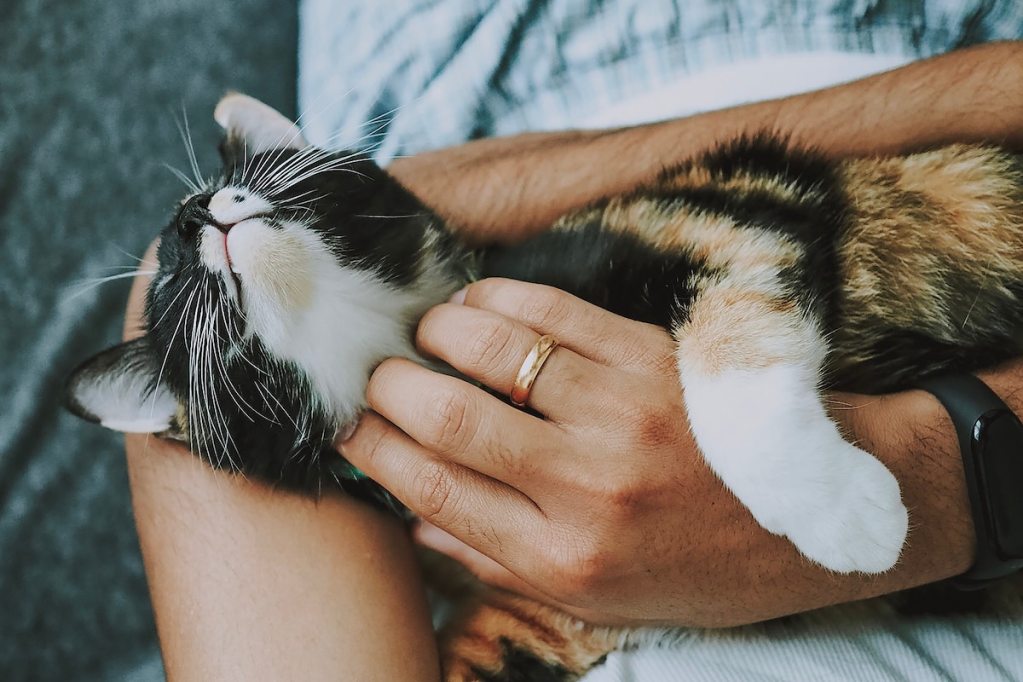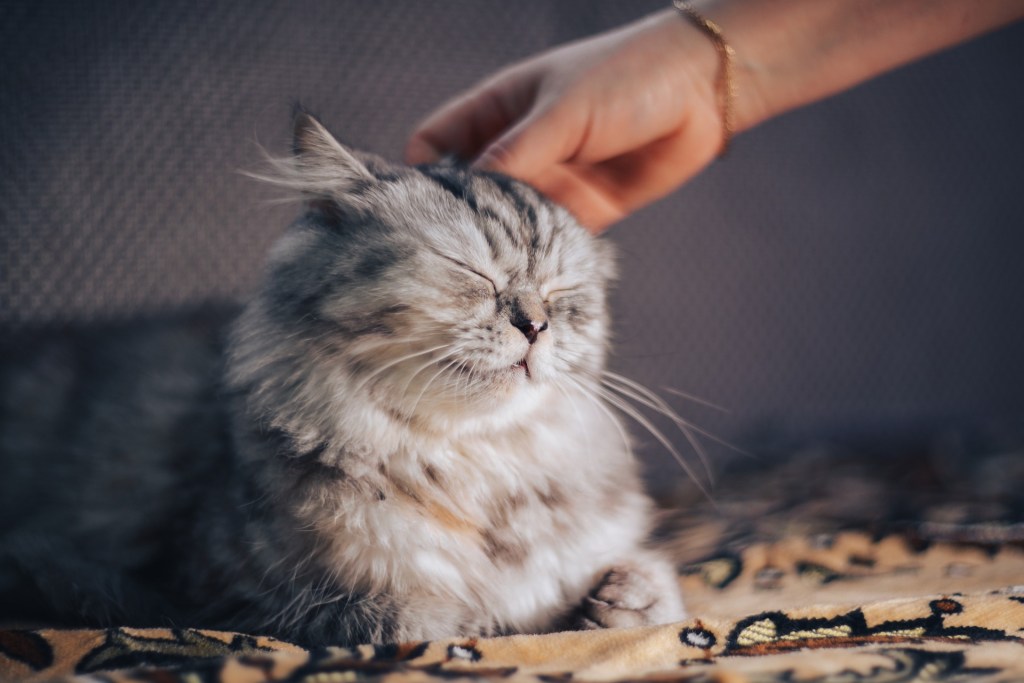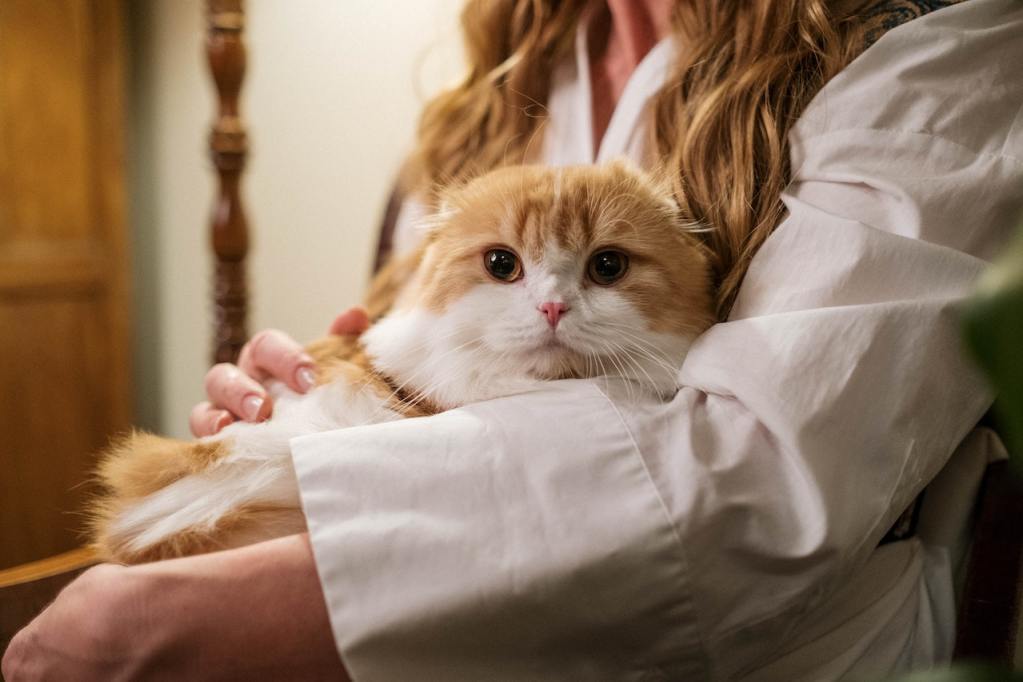
Any pet can brighten your day and improve your mood, and cats are no exception. They’re our best friends, our constant companions, and our furry, purring lap warmers. Whether they’re making you laugh at their silly antics or warming your heart (and lap), there’s no doubt that cats are great to have around.
What you might not have known is that cats can also improve your health! It’s true — and these are the top three cat health benefits. We’ll explain why sharing your home with a feline companion is one of the best things you can do for yourself. In case we convince you, we’ll also recommend some of our favorite beginner-friendly cat breeds. Let’s jump in!

Here’s how being a cat person benefits your health
Sharing your home with a cat can be a cute and rewarding experience. From their sweet, sleepy blinks to their precious whiskers, everything about cats is as cute as can be. Even so, you’ll be glad to know that there are many more benefits to owning a cat. Let’s delve into three scientifically proven ways your cat improves your life.
Cats can improve your mood, even if they’re not in the room with you
In a study conducted by Indiana University Media School, researchers surveyed over 7,000 people after they watched cat videos on the internet. The results may surprise you: Scientists found that even watching videos of other people’s cats improves your mood and decreases negative emotions in viewers. Film your cat’s playful antics, and then rewatch them later — they will boost your mood!
Spending time with a cat can reduce your risk of heart disease
Numerous studies have found that being a cat parent reduces stress levels. We all know that high levels of stress and cardiovascular disease are linked, making a drop in stress extremely beneficial to your heart health. In fact, studies have shown that having a cat can lower your risk of heart disease and stroke by a whopping 30%!
Cats can actually heal their owners
Yes, you read that correctly! As surprising — and fantastical — as it sounds, cats can actually promote healing in their human family members. Although her adorable chirps can only brighten your day, your cat’s purr can improve your physical health. Research has shown that sound frequencies in the range of 18-35 Hertz help repair joint damage after injury, and the vibrations from your cat’s purr clocks in at a frequency of 25-150 Hertz.

Do cats benefit from human interactions, too?
It’s pretty amazing to witness the ways people benefit from having a furry friend around, but many folks are left wondering whether having a human around benefits cats, too. You’ll be glad to know that it does! People give their cats essentials like food, water, and shelter, of course, but a 2019 study proved that felines see their owners as so much more than a caretaker. In fact, 64% of cats and kittens displayed a secure emotional attachment to their owners, showing that the people in their lives provided a sense of safety and comfort, too.
Additionally, some of the same interactions that benefit cat owners also benefit the cats themselves. When felines purr, their brain releases chemicals called endorphins that act as mood boosters and even pain relievers. These chemicals, or hormones, are often released in the brain in response to pain or stress, so it’s fascinating why they’re also released during purring. In fact, human brains also release endorphins when exposed to cat purrs!

Can cats sense illness or stress?
Now that you’re familiar with the health benefits of owning a cat, you might be wondering if cats know when you need them. The answer is a resounding yes! Not only do they know when you’re getting sick, but they often want to help you feel better.
Like dogs, cats can smell chemical or hormonal changes in your body, like those caused by an illness. Pets are also attuned to our routines, and they notice when we do things differently. This includes sleeping more, eating less, or not leaving the house at our normal times, all of which can be signs that you aren’t feeling well.
If you find yourself feeling sick, sad, or stressed, you might notice your cat spending more time with you. A cuddly cat might even lay on your chest or lap and purr loudly. If your cat is less fond of cuddling or hasn’t gotten used to you yet, your cat may still sit closer to you than normal, watch you closely, and purr or blink at you.

The best cat breeds for beginners
If you’ve been considering adopting a cat and don’t already have one, this may be the sign you’ve been waiting for. However, some cat breeds are more beginner-friendly than others. Here are a few of our favorites:
Maine coons are the gentle giants of the cat kingdom
As one of the largest cat breeds available, the Maine coon makes an ideal companion if you’re concerned about having a tiny creature underfoot. Maine coons are sweet and loving toward all members of the family, including children and other pets.
Scottish folds are known for their friendly personalities
These clever kittens are another big hit with first-time pet parents. They’re curious, playful, and gentle around children. And their adorable folded ears are irresistible.
Siamese cats are smart, social, and oh-s0-elegant
Perhaps the most instantly recognizable cat breed, the Siamese is a wonderful first cat. They don’t require much grooming, and they adore spending time with the family. They’re also extremely intelligent and social, so these cats likely won’t be hiding!
No matter what breed of cat you have, though, you’ll find plenty of reasons why having them around elevated your life. Even if you’re a first-time cat parent, it’s easy to see how these regal roommates can keep you company, make you smile, and even improve your health. How cool!



